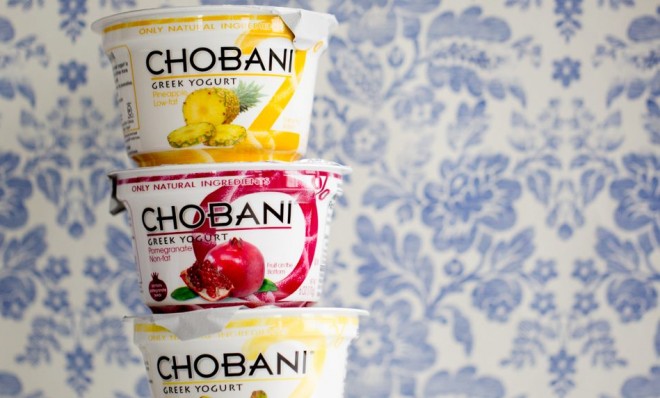Is Greek yogurt hurting the environment?
Good for your body; terrible for the planet


A free daily email with the biggest news stories of the day – and the best features from TheWeek.com
You are now subscribed
Your newsletter sign-up was successful
Greek yogurt has seen an astronomical growth in sales over the past half decade — but it may be taking an unexpected toll on the environment.
While it takes one cup of milk to produce one cup of traditional yogurt, it takes at least three cups of milk to produce a single cup of the thicker, healthier Greek variety.
That's because Greek yogurt is a "strained" version of the dairy product, meaning it's been stripped of whey, a watery by-product. All that excess whey — known as "acid whey" because of its high level of acidity — isn't necessarily dangerous in itself. However, it's incredibly difficult to dispose of because simply dumping it could lead to serious consequences.
The Week
Escape your echo chamber. Get the facts behind the news, plus analysis from multiple perspectives.

Sign up for The Week's Free Newsletters
From our morning news briefing to a weekly Good News Newsletter, get the best of The Week delivered directly to your inbox.
From our morning news briefing to a weekly Good News Newsletter, get the best of The Week delivered directly to your inbox.
Here's Justin Elliot, writing in Modern Farmer, about that problem:
Not only would that be illegal, but whey decomposition is toxic to the natural environment, robbing oxygen from streams and rivers. That could turn a waterway into what one expert calls a "dead sea," destroying aquatic life over potentially large areas. Spills of cheese whey, a cousin of Greek yogurt whey, have killed tens of thousands of fish around the country in recent years. [Modern Farmer]
The booming Greek yogurt industry has exacerbated the problem, since it's now churning out too much whey, way too fast.
Greek yogurt is considered much healthier than its traditional counterpart. It has twice the protein content, and it's lower in lactose, or milk sugar, meaning it fills you up without packing on empty calories.
As a result, Greek yogurt has become a $2 billion industry that has rapidly begun to eat away at the overall yogurt market. Last year, Greek yogurt accounted for 35 percent of all yogurt sales, up from just 1 percent in 2007, according to market research firm Packaged Facts.
A free daily email with the biggest news stories of the day – and the best features from TheWeek.com
Yet with those increased sales has come increased waste. Tons of it. New York, which produces more Greek yogurt than any other state in the nation, produced 66 million gallons of acid whey in 2011 alone.
Andrew Novakovic, a professor of agricultural economics at Cornell University, elaborated on that point in an interview with Bloomberg Businessweek. Using an analogy about dumping food scraps in a river, he explained that while acid whey isn't problematic in small quantities, it can wreak havoc when dumped en masse.
"It's not that apple peelings are going to kill you," he said, "but natural systems like a river can only handle so much foreign biological material."
According to a report from the United Nations' Food and Agriculture Organization, whey is a "strong pollutant" when dumped into streams in large quantities. By its estimate, a cheese factory that processes roughly 26,400 gallons of milk per day would produce the same amount of pollution as a city of 60,000 people.
"Given the large quantity of whey produced worldwide each year, the risks of pollution are therefore extremely high," the report concludes.
One solution to the problem has been to feed the whey to cows and other livestock. However, they can only eat so much without messing up their digestive systems.
With Greek yogurt producers turning out more and more whey, farmers and lawmakers are beginning to explore alternatives, like feeding a refined version of the by-product to babies.
Jon Terbush is an associate editor at TheWeek.com covering politics, sports, and other things he finds interesting. He has previously written for Talking Points Memo, Raw Story, and Business Insider.
-
 How the FCC’s ‘equal time’ rule works
How the FCC’s ‘equal time’ rule worksIn the Spotlight The law is at the heart of the Colbert-CBS conflict
-
 What is the endgame in the DHS shutdown?
What is the endgame in the DHS shutdown?Today’s Big Question Democrats want to rein in ICE’s immigration crackdown
-
 ‘Poor time management isn’t just an inconvenience’
‘Poor time management isn’t just an inconvenience’Instant Opinion Opinion, comment and editorials of the day
